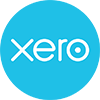Trust structures are foundational to financial planning and asset management in Australia, offering individuals and businesses versatile tools for wealth preservation, tax optimisation and succession planning. In this comprehensive guide, our accountants in Melbourne will detail the intricacies of different trust types, providing detailed insights into their functionalities, applications and benefits. Each trust type is accompanied by a practical example, illustrating its real-world relevance and utility.
Discretionary Trust (Family Trust)
Discretionary trusts, commonly known as family trusts, are renowned for their flexibility in income distribution and asset protection. Here’s a closer look:
- Functionality – Trustees have the discretion to distribute income and assets among beneficiaries as they see fit.
- Applications – Primarily used for tax planning, asset protection and estate planning purposes.
- Benefits – Offers flexibility in managing income streams, minimises tax liabilities through strategic distribution and provides robust asset protection against creditors and legal claims.
Example
Sarah, a successful business owner, sets up a discretionary trust to manage her wealth and provide for her family’s future. As the trustee, Sarah has the discretion to distribute income and assets among her children based on their needs and circumstances. This flexibility allows Sarah to optimise tax outcomes and protect family assets while ensuring her children’s financial security.
Unit Trust
Unit trusts are structured around units held by beneficiaries, facilitating transparent distribution of income and capital. Let’s explore further:
- Functionality – Beneficiaries hold units representing their beneficial interest in the trust assets, with income and capital distributed based on unit holdings.
- Applications – Ideal for property investments, collective investment schemes and business ventures requiring clear delineation of ownership interests.
- Benefits – Provides transparency in income distribution, facilitates pooling of resources for investment purposes and enables easy transfer of units to new investors.
Example
John and Emily, two friends interested in property investment, establish a unit trust to pool their resources and acquire rental properties. John holds 60 units, while Emily holds 40 units, reflecting their respective contributions. Rental income and capital gains from property investments are distributed to John and Emily based on their unit holdings, providing a transparent and equitable arrangement for their investment partnership.
Hybrid Trust
Hybrid trusts combine features of both discretionary and unit trusts, offering a unique blend of flexibility and certainty. Here’s what you need to know:
- Functionality – Offers discretionary income distribution alongside fixed entitlements for certain beneficiaries.
- Applications – Suited for businesses seeking a balance between flexibility and stability in income distribution, often used in investment holding structures. A business advisory in Melbourne can help determine if a hybrid trust is a suitable option.
- Benefits – Provides flexibility to tailor income distributions to suit changing circumstances, while offering fixed entitlements for specific beneficiaries, ensuring certainty and stability.
Example
Michael, the owner of a growing business, sets up a hybrid trust to structure his company’s ownership and succession plan. The hybrid trust allows Michael to retain control over the business while providing fixed entitlements to key employees as beneficiaries. This ensures continuity in business operations and incentivises employee loyalty through profit-sharing arrangements.
Fixed Trust
Fixed trusts, also known as non-discretionary trusts, distribute income and capital according to predetermined proportions. Let’s delve deeper:
- Functionality – Income and capital distributions are fixed and predetermined, with beneficiaries holding fixed entitlements.
- Applications – Utilised for specific investment purposes, structured finance arrangements and where certainty in income distribution is paramount.
- Benefits – Offers clarity and certainty in income distributions, facilitates structured finance transactions and provides a straightforward framework for investment vehicles.
Example
Susan, an investor, participates in a fixed trust established to finance a renewable energy project. The trust agreement specifies predetermined proportions for income distribution among investors based on their investment amounts. Susan’s fixed entitlement ensures a steady stream of income from the project, offering stability and predictability in her investment returns.
Testamentary Trust
Testamentary trusts are established under a will and come into effect upon the death of the testator. Here’s what sets them apart:
- Functionality – Created to manage assets and provide for beneficiaries after the testator’s death, offering asset protection and tax benefits.
- Applications – Commonly used in estate planning to provide for minors or individuals with special needs or to protect assets from potential creditors.
- Benefits – Enables effective estate planning, minimises tax liabilities for beneficiaries and provides ongoing management of assets according to the testator’s wishes.
Example
David, a father of two young children, incorporates testamentary trusts into his estate planning to protect his children’s inheritance. In his will, David establishes testamentary trusts to hold assets on behalf of his children until they reach a certain age. This structure ensures that David’s assets are managed responsibly and provides financial security for his children’s future needs.
Conclusion
Trust structures offer a versatile framework for managing wealth, protecting assets and planning for the future in Australia. By understanding the practical applications of different trust types through real-life examples, individuals and businesses can make informed decisions to achieve their financial goals effectively. Whether it’s optimising tax outcomes with discretionary trusts, pooling resources for investments with unit trusts or ensuring continuity in business operations with hybrid trusts, there’s a trust solution suited to every financial objective and circumstance. For more information on trusts, contact Alexander Bright – a trusted provider of accounting services in Melbourne.
Disclaimer: The accounting advice provided in this article is for informational purposes only and should be self-verified or consulted with a qualified accountant before making any financial decisions.
Managed Accounting Services
Our Newsletter
Article Categories
Select Month





